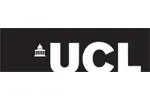We're moving! This site will be relocating to goingto.university in 2026. Please update your bookmarks to the new address.


the United Kingdom
University College London (UCL)| The award | How you will study | Study duration | Course start | Domestic course fees | International course fees |
|---|---|---|---|---|---|
| MA | Full-time, Part-time, Mixed-mode | 1 - 2 year | January, April, October | - | - |
This masters degree will:
This masters degree provides the opportunity to:
Anyone with a personal, professional, educational or academic interest in media, culture and communication in terms of both analysis and production.
Entry requirementsA good first degree in a relevant subject.
Core topicsBy coursework assignments of up to 5,000 words, plus practical work for some modules, and a 20,000-word dissertation or 10,000-word report.
AttendanceMixed mode, including face-to-face residential workshops at the IOE and British Film Institute of two to three days per module, supported by online learning.
Where do our students go?Graduates of this masters degree are currently working as:
This masters degree will:
This masters degree provides the opportunity to:
Anyone with a personal, professional, educational or academic interest in media, culture and communication in terms of both analysis and production.
Entry requirementsA good first degree in a relevant subject.
Core topicsBy coursework assignments of up to 5,000 words, plus practical work for some modules, and a 20,000-word dissertation or 10,000-word report.
AttendanceMixed mode, including face-to-face residential workshops at the IOE and British Film Institute of two to three days per module, supported by online learning.
Where do our students go?Graduates of this masters degree are currently working as:
Core modules
Below are some suggested courses at other providers that you may also be interested in:
Graduate Diploma of Engineering (Safety, Risk and Reliability) Graduate Diploma
Engineering Institute of Technology
Find out moreGraduate Diploma of Translating and Interpreting Graduate Diploma
Macquarie University
Find out moreGraduate Diploma in Health Management and Leadership Graduate Diploma
Queensland University of Technology (QUT)
Find out moreGraduate Diploma of Specialist Education Graduate Diploma
Charles Darwin University (CDU)
Find out moreLaw (full-time) Graduate Diploma
The University of the West of England, Bristol (UWE Bristol)
Find out moreIf you do not meet the entry requirements for this course then consider one of these postgraduate preparation courses from another institution:
Graduate Diploma of Engineering (Safety, Risk and Reliability)
Engineering Institute of Technology
Find out moreGraduate Diploma in Health Management and Leadership
Queensland University of Technology (QUT)
Find out moreThere are 633 other courses listed from University College London (UCL). A selection of these are displayed below:
Join the StudyLink email list and never miss a chance to turn your study abroad dreams into reality!

See other universities in London
Find out more about studying in the United Kingdom